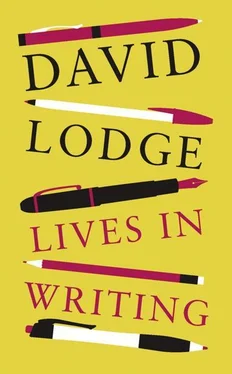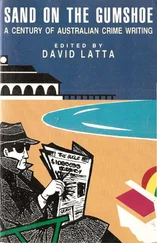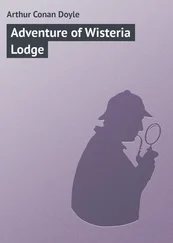But why did Wells arrive at Well Hall without warning or an invitation? If the two homes were not connected by telephone at that date, why didn’t he write or send a telegram asking if it would be convenient? And why did he want to go there to write anyway? These are not questions that Julia Briggs felt required to answer, but in a novel we expect actions to be motivated (if they are not, a mystery is created which must be resolved sooner or later). There is a hint of an explanation in the warm letter of thanks Wells wrote to Edith shortly after his return home, which Briggs reproduced in her next paragraph:
The thing cannot be written! Jane I think must take on the task of describing the departure of a yellow, embittered and thoroughly damned man on one Thursday and his return on the next, pink. . exultant. . full of the most agreeable memories.
Julia Briggs does not mention that Wells’s visit occurred soon after the death of his mother in June of that year — and there was no reason why she should have been aware of it, since she was writing a biography of Edith, not H.G. His mother was the dominant figure in his family in childhood and he had struggled against her will for years in the effort to escape the wage-slavery of the retail trade to which she had apprenticed him. He felt his subsequent success had never really reconciled them. He was upset by her death, and even more when shortly afterwards he read her private diary. According to Anthony West, in H.G.Wells: Aspects of a Life (1984), H.G. was deeply shaken by the unlikeable personality revealed in the diary, by evidence of his mother’s growing dislike of his father, and the fact that she submitted to a third pregnancy in the hope of replacing her adored daughter Possy who died in childhood, only to be bitterly disappointed by the birth of H.G. This was the most likely cause of the ‘embittered’ mood which he hoped to throw off at Well Hall, but it didn’t explain why he arrived there without first ascertaining that he would be welcome. To bridge this explanatory gap I wrote the following passage to precede his arrival.
He was upset by his mother’s death, but unwilling to share these thoughts with Jane, or anyone else. He was irritable and restless in the weeks that followed the funeral, unable to get on with a new book he had started called In The Days Of The Comet . He bickered with Jane about household matters, and shouted angrily at his boys when they made too much noise in the garden outside his study window, making little Frank cry. ‘What’s the matter with you?’ Jane asked. ‘I need to get away,’ he said. ‘Where will you go?’ ‘I don’t know,’ he said. ‘Maybe to the Reform. I could work in the library there.’ He had been elected to this famous club, another feather in his cap, in March. He packed a few clothes and the manuscript of In The Days Of The Comet in a valise and set off for London, but on the journey the idea of staying at the Reform in the middle of July, when everybody he knew among the members, like Arnold Bennett and Henry James, would be in the country or abroad, did not appeal. He needed company, sympathetic company. He thought of Edith Bland. here
This passage is mostly invention, but inferable from or consistent with the facts that are known about Wells’s life at this time. It, or something like it, was essential to preserving the novelistic cohesion of the narrative.
Bio-fiction does not pretend to replace biography, but complements it, offering a different kind of interpretation of real lives. But by putting himself imaginatively inside the consciousness of a historical individual the novelist can sometimes contribute to interpreting biographical ‘facts’. The episode of Wells’s life that required me to use most imaginative reconstruction was his affair with Rosamund Bland. Few hard facts are known about it. It began probably at or near Dymchurch, in East Sussex, where the Blands had a holiday house, near the Wellses’ home in Sandgate, in the summer of 1906, when Rosamund was a nubile, flirtatious young woman of nineteen, secretary of the newly formed group of young Fabians known as the Nursery, and very much under H.G.’s spell. According to Wells’s own brief, slightly ashamed account in the Postscript, he ‘never found any great charm in Rosamund’, but ‘she talked of love and how her father’s attentions to her were becoming unfatherly’, so he decided to protect her from incest by taking over her sexual education, encouraged by her natural mother Alice, ‘who had a queer sort of liking for me’. Hubert Bland got wind of the affair and used it to blacken Wells’s character among the senior Fabians later that year at a critical moment in his campaign to reform the society. Relations cooled between the two families but there was no permanent breach until, at some subsequent date, Wells and Rosamund were intercepted by Bland on Paddington Station in the act of going off together — ‘for a dirty weekend in Paris’ according to her sister-in-law’s later testimony — and by some accounts the enraged father, an amateur boxer who used to spar with Bernard Shaw, thumped Wells before dragging his errant daughter home. It’s an episode which no novelist could resist, and I had marked it for inclusion in my novel from an early stage.
Julia Briggs usefully pointed out that Wells may have planned to travel from Paddington to Plymouth to take one of the transatlantic liners across the Channel, a less conspicuous route than the shorter ones. She also believed the incident must have happened soon after 4 March 1908, because of a surviving letter from Rosamund to Jane Wells of that date, which begins:
Dear Mrs Wells,
Of course you have an invitation to the Nursery lectures. I wouldn’t think of sending you a ticket. It never occurred to me to write and ask you because I thought you would understand that you were to come if you wanted to. I’m so sorry you aren’t coming to our dance on the 20th. I thought I might have had an opportunity of talking to you a little bit.
Briggs asserted: ‘it is virtually impossible that Jane Wells would have been asked to a dance at Well Hall after the event [at Paddington].’ With this I had to agree, but it created a serious problem for the cohesion of my novel. As Briggs was aware, Wells began his affair with Amber Reeves in the spring of 1908 — in fact during her Easter vacation, when she was preparing for her Tripos Part II examinations. It was the culmination of a mutual attraction, cloaked by a kind of tutorial relationship, which had developed at an accelerating pace that year; one of the great passions of Wells’s life, and his most daring experiment in Free Love, which lasted for nearly two years until very reluctantly he agreed to end it. Why on earth would he go off on a dirty weekend with a girl he never deeply cared for, a few weeks before he and Amber became lovers? How could I make this psychologically plausible, and not utterly discreditable? I could not consult Julia Briggs about the dates, because sadly she had died shortly before I reached this stage in the composition of A Man of Parts .
The problem baffled me, and blocked the progress of my novel for some time, until I suddenly saw the answer. Because the Blands had dancing when they entertained large parties at Well Hall, Briggs had assumed that ‘our dance’ in Rosamund’s letter referred to such an occasion, but it was much more likely that it referred to a dance organised by the Fabian Nursery to which Jane and H.G. had been invited as members of the Executive. Rosamund was Secretary of the Nursery and would naturally refer to it as ‘our dance’ in her letter. I deduced that Jane had received from Rosamund a Nursery flyer advertising the lectures and an invitation to the dance, and that Jane had written to her asking if she could attend the lectures but saying that she and H.G. wouldn’t be able to attend the dance. Rosamund says in her letter that her sister Iris is staying with the family at Well Hall, convalescing from a difficult childbirth, and that she herself intends to go and stay with Iris for two months when she returns home. It seems very improbable that Edith and Hubert would host a dance at such a juncture, and Briggs had to speculate, without any evidence, that Rosamund changed her plans to stay with Iris, in order to place the ‘dirty weekend’ escapade between the writing of the letter and the commencement of Wells’s affair with Amber in the late spring of that year.
Читать дальше












